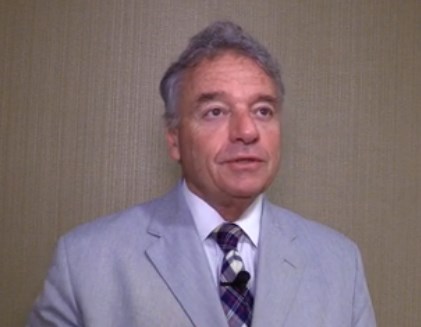User login
WASHINGTON – “No one would say the reversal of the medical effects of [illicit drug use] is ‘treatment,’ ” says Dr. Mark S. Gold, an addiction specialist in the department of psychiatry at Washington University in St. Louis. That’s only the beginning, he says. After patients with drug addictions are stabilized, then begins the complicated and lengthy task of treatment. Yet, there is a coming shortage of medical personnel qualified to offer addiction treatment, says Dr. Gold, who cites that – in the next decade – the addiction-treatment workforce will be 10 times too small to meet the demand. In this video, recorded at the Summit in Neurology & Psychiatry held by the Global Academy for Medical Education, Dr. Gold discusses ways that primary care physicians and others can help. The Global Academy and this news organization are owned by the same company.
The video associated with this article is no longer available on this site. Please view all of our videos on the MDedge YouTube channel
On Twitter @whitneymcknight
WASHINGTON – “No one would say the reversal of the medical effects of [illicit drug use] is ‘treatment,’ ” says Dr. Mark S. Gold, an addiction specialist in the department of psychiatry at Washington University in St. Louis. That’s only the beginning, he says. After patients with drug addictions are stabilized, then begins the complicated and lengthy task of treatment. Yet, there is a coming shortage of medical personnel qualified to offer addiction treatment, says Dr. Gold, who cites that – in the next decade – the addiction-treatment workforce will be 10 times too small to meet the demand. In this video, recorded at the Summit in Neurology & Psychiatry held by the Global Academy for Medical Education, Dr. Gold discusses ways that primary care physicians and others can help. The Global Academy and this news organization are owned by the same company.
The video associated with this article is no longer available on this site. Please view all of our videos on the MDedge YouTube channel
On Twitter @whitneymcknight
WASHINGTON – “No one would say the reversal of the medical effects of [illicit drug use] is ‘treatment,’ ” says Dr. Mark S. Gold, an addiction specialist in the department of psychiatry at Washington University in St. Louis. That’s only the beginning, he says. After patients with drug addictions are stabilized, then begins the complicated and lengthy task of treatment. Yet, there is a coming shortage of medical personnel qualified to offer addiction treatment, says Dr. Gold, who cites that – in the next decade – the addiction-treatment workforce will be 10 times too small to meet the demand. In this video, recorded at the Summit in Neurology & Psychiatry held by the Global Academy for Medical Education, Dr. Gold discusses ways that primary care physicians and others can help. The Global Academy and this news organization are owned by the same company.
The video associated with this article is no longer available on this site. Please view all of our videos on the MDedge YouTube channel
On Twitter @whitneymcknight
AT THE SUMMIT IN NEUROLOGY & PSYCHIATRY
